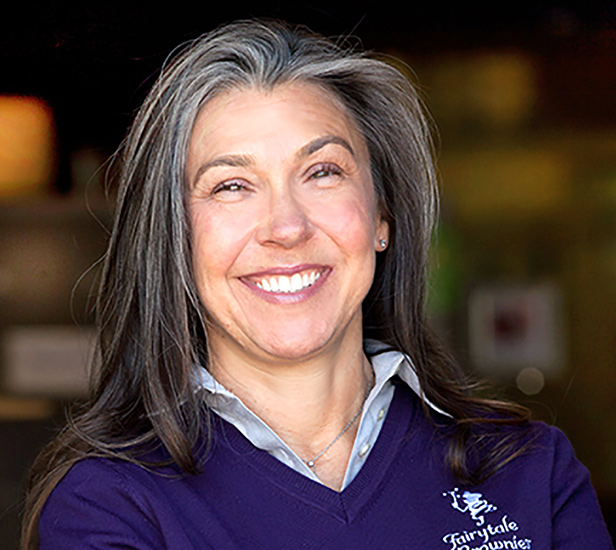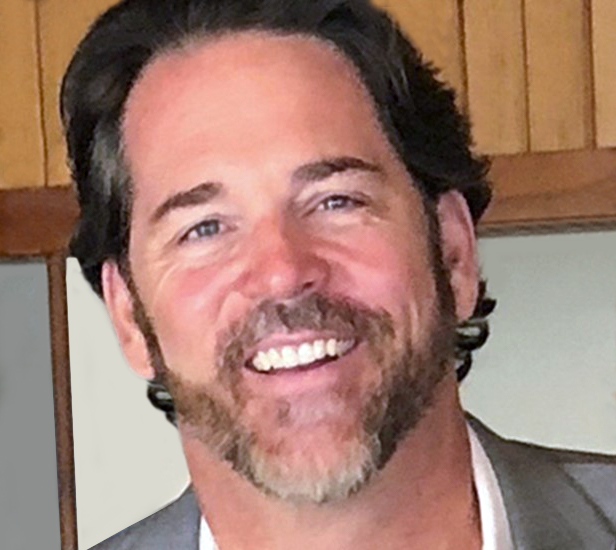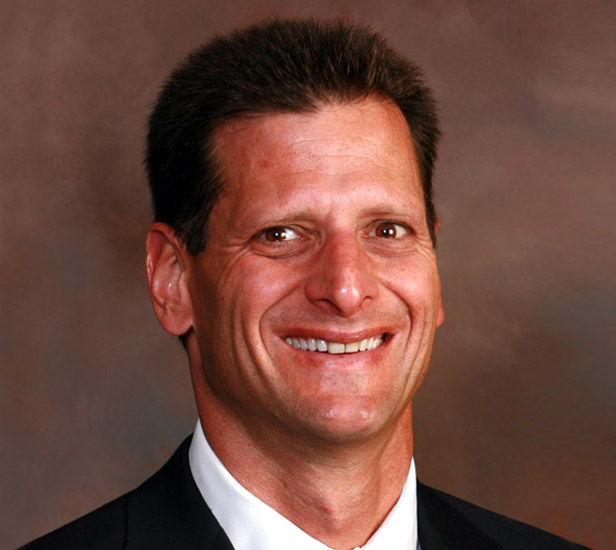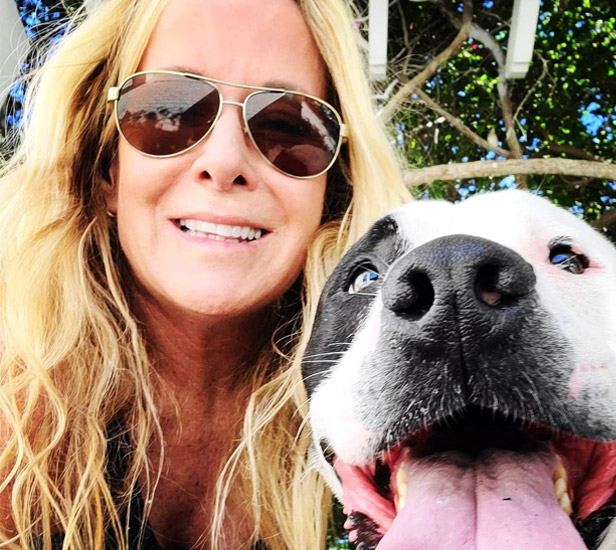Strategy February 26, 2021
Project 2021: Promo Firms Weather the Winter
We’re following 10 promo companies – suppliers, distributors and decorators – this year to see how they meet the challenges of a post-COVID world.
As 2021 progresses, the promo industry is slowly returning to more normal activity, after weathering a nearly 20% drop in sales last year. Traditional promo items like pens and mugs are once again at the top of list for ESP searches, rather than the PPE items that dominated 2020. And many promo firms are seeing an uptick in interest for their products and services.
This year, ASI Media staffers are tracking a cross-section of industry players – suppliers, distributors and decorators of every size, from one-person operations to Top 40 multinational firms. Each month, we’ll be checking in to learn more about their unique challenges and celebrate their hard-won successes. You can read the first installment of the series here. The next installment will be published at the end of March.
The Suppliers
Compass: Proudly Selling American-Made

Josh Levy, CEO
Compass (asi/46170) was only down 9% in 2020, which the company considered a victory given the shutdowns and harsh economic climate. And besides selling its own Made-in-the-USA clean tool, the New York City-based supplier didn’t really get into PPE. Instead, it relied on its assortment of high-end, brand-name tools and outdoor items to carry it through. “Like everyone else, we considered selling PPE, but decided not to do the typical PPE items such as masks and sanitizers,” says CEO Josh Levy. “There were so many companies going into that market we felt that although we might get a bump in sales initially, it was going to be totally saturated, and we weren’t sure we wanted to try to compete in that space.”
The story has been much the same so far in 2021. The supplier was down about 5% year over year through mid-February (i.e. pre-COVID). Levy says sales of its clean tool are down 80% from the 2020 peak, but the company expected a drop off. “Thankfully, we’re not stuck with inventory as we make them here in the U.S.,” he says. “So, frankly, we rode the horse for as long as we could. I’m more than happy to get back to normal and not have to hear the word PPE anymore.”
Made-in-the-USA is a signature element for Compass. Leatherman and Maglite, two of the company’s biggest brands, are made in America. The supplier carries other Made-in-the-U.S. products from Buck Knives, Duluth Pack, Zippo and more. Levy says the pandemic has helped increase demand for American-made: “We have always prided ourselves on the fact that we carry a lot of U.S.-made items. … Customers were definitely feeling patriotic last year and wanted to buy U.S.-made products.” – C.J. Mittica
Fairytale Brownies: Programs Sweeten up Sales

Eileen Joy Spitalny, co-founder
Phoenix-based Fairytale Brownies (asi/53518) continues to taste sweet success, as sales were up in February.
It wasn’t necessarily due to Valentine’s Day, though. “Some of our clients took a break from their monthly programs last year right about this time,” says Eileen Joy Spitalny, co-founder of Fairytale Brownies. “Now those programs are slowly starting to come back. Orders tied to birthdays, appreciation and apologies are also coming in.”
The supplier has a new “Thank You Healthcare” product line available just in time for National Doctors’ Day on March 30. Boxed with a band decorated in purple and red hearts, bandages and stethoscopes, the treats come individually wrapped for freshness, safety and shareability.
Due to severe weather across the country, some shipments were delayed last month. “That’s completely out of our hands, though,” Spitalny says. “We don’t have any importing issues, as we do all our baking, production and customizing of the gifts ourselves at our bakery. And we have inventories of our packaging in house, so we’re not waiting or relying on vendors.” – John Corrigan
Starline USA: Staying the Course

Brian Porter, senior vice president of sales and marketing
The team at Starline USA (asi/89320) is committed to staying the course with its core products, specifically its uni-ball writing instruments. Since the supplier’s partnership with the writing instrument brand in August 2020, Brian Porter, senior vice president of sales and marketing, says sales have taken off among corporations, finance, real estate, mortgage companies and universities.
“We’re having a record month so far, up 50% over a very solid February 2020,” says Porter. “We didn’t really pivot to PPE at all, so our focus has been core products from the beginning. I think our consistency there is what’s paying dividends today.”
Another booming category: personalized drinkware. Recipients avoid accidental sharing while enjoying a special gift. “Personalization takes a traditional drinkware piece that HR could simply pull from the promo room and ship out, and turns it into an intimate product created just for that employee or client,” Porter says. “There’s nothing like getting a product with your name on it.”
Starline Canada (asi/89213), based in Concord, ON, is seeing similar demand in its drinkware, home goods and cooler bags categories, though sales are just behind those in the U.S.
As the pandemic continues, Starline’s been getting creative with ways to continue fostering relationships with clients. Virtual trade shows haven’t had the returns the company has expected, so they’ve partnered with other suppliers to offer smaller “power hours” to three or four distributors at a time. Combined with regular Zoom meetings with clients and the company’s customizable Idea Book catalog, they’ve been “a recipe for success,” says Porter.
Meanwhile, employee morale is high and management encourages colleagues to share what they’re seeing in the industry, how they’re feeling about where things stand and where they could make improvements.
“It’s a total collaborative effort that’s gotten us to where we are today,” Porter says. “We look forward to continuing this momentum through the spring.” – Sara Lavenduski
The Distributors
Whitestone Branding: Off to a Good Start

Joseph Sommer, owner
For Joseph Sommer, things are looking up.
The owner of distributor Whitestone Branding (asi/359741), headquartered in New York City but with a remote workforce around the country, says that year-to-date sales have improved compared to the same period in 2020. Powered by kitting and drop-shipping projects, Q1 business is on track to be steady with or slightly better than the first quarter of 2020. And, sales are progressing in a way that will allow Whitestone to meet Sommer’s full-year target.
“We’re hearing from a lot of event managers who haven’t been in touch for quite some time,” Sommer says. “With warm weather approaching, and the ability to have events outside nationwide, we’re anticipating a busy second quarter. Last year, in the second quarter, we were down almost 50% because of the coronavirus. That won’t be the case this year, which is something to celebrate.”
Whitestone is finding considerable success working with end-clients that include artists, musicians, media companies and retail brands. “We’re seeing a need for a one-off gifting service or the ability to sell kits in small quantities,” Sommer says. “People are gifting in so many different ways, and the need to have a solution for this for all our clients is an opportunity in the marketplace.”
The biggest challenge he’s up against? “Fierce competition from online companies,” Sommer says. “With the web being so dominant now in marketing and advertising, it’s hard to see that changing any time soon.”
Still, Sommer is optimistic and focused on the future. To that end, he’s hired a sales trainer who’s handling recruiting, hiring, training and developing new talent. “With a remote workforce, we realized the need for more attention, training and support,” Sommer says. “Overall, we see opportunity out there and we think we’ll be in a good position to capitalize.” – Christopher Ruvo
Jack Nadel International: ‘Follow the Money’

Craig Nadel, president
Ever the optimist with a healthy dose of realism, Craig Nadel is acutely aware of how difficult the first two quarters of 2021 are going to be for the promo industry, but sees areas of normalcy and hope that we’ve turned the corner and are on the right side of the coronavirus.
“Q4 of last year was really good and, in fact, was better than Q4 of ’19,” says Nadel, president of the CA-based Top 40 distributor Jack Nadel International (asi/279600). “However, this January was weak – about 30% off January 2020 – and as I write this in mid-February, February is down too, about 17%.”
And despite being headquartered in hard-hit California, Nadel hasn’t seen a rise in demand for PPE, even as new variant strains of the virus emerge and the CDC recommends donning double masks. “As best as I can tell, we’re atypical of the industry,” he says. “When COVID hit, our traditional sales fell dramatically, about 75%. However, for a few months at least, we were getting a lot of PPE orders to partially make up for it. But that was back in April, May and June; since then, our PPE sales have fallen, and we haven’t been doing too much PPE. I would estimate it’s only 10% to 15% of our sales now.”
Nadel says one thing he believes this industry does exceedingly well is to leverage new business opportunities and emerging markets. “There’s that famous clip from the wonderful old movie All the President’s Men where Deep Throat – the highly-placed government source to Washington Post reporters Woodward and Bernstein – tells them to ‘follow the money,’” Nadel recounts. “Anyone who follows the news knows Peloton, Zoom, Netflix, mortgage companies, etc. are doing well; consequently, those are some places where we’re doing well. The other thing we’ve seen a real increase in is RFPs the last couple of months. I don’t know what that means for the future, but after COVID hit we had far less activity there, but the last couple of months we’ve seen a significant increase. Kitting, too, continues to be a very large percentage of our business and are still being drop-shipped to recipients’ homes instead of offices.”
Regarding ongoing supply chain and inventory issues, Nadel says they’re “better than they were but still worse than pre-COVID. … I think the huge amount of drop-shipments is very difficult for all of us,” he acknowledges. “There are still a lot of out-of-stock issues too.”
He also points out how California has an uphill climb steeper than many, given that if it were its own nation, its economy would be the fifth-largest in the world and has been decimated in many areas. “Our state is a pretty good example of both the ‘overcome and adapt’ aspect of our country and also the bifurcation of how for many in society life is very difficult,” Nadel says. “On the upside what was thought to be a huge deficit in the state isn’t as dire because of the booming stock market, especially for IPOs of tech companies. Many businesses are thriving and people working at those companies, or with those companies, are doing well. Most of those companies are tech companies and they, mostly, can work well at home. On the other hand, those that aren’t tech companies tend to be suffering. We haven’t handled COVID well here in California, and some of our major underlining issues haven’t been addressed, such as a lack of affordable housing, a very unfriendly business climate, fires, etc. Our state has great potential and opportunities but many issues – a lot of which are self-inflicted.” – Michele Bell
Moore Promotions: Signs of Spring for Sales

Kelly Moore, owner
While winter remains in full swing, spring is starting to return to Kelly Moore’s sales. “Many of my dormant clients are starting to come out of the woodwork again,” says the owner of St. Petersburg, FL-based distributor Moore Promotions (asi/601617).
Case in point: A large event for a dental association she works with had been canceled because of COVID but has now been rescheduled for July. The client has contacted Moore for swag solutions, and she’s lining up an order for thousands of shirts. “I’m also seeing some momentum with new clients too,” says Moore, an independent solo-operating distributor. “I picked up three new clients in January who’ve placed decent orders.”
Nonetheless, the first quarter has still been a rocky road. Moore anticipates that business will be down compared to Q1 2020, as she’s doing fewer quotes. In addition, about a third of the quotes she does don’t materialize into orders.
That’s not to say, however, that Moore’s not also authoring success stories. School districts are ordering, and demand is strong among her mortgage/real estate clients, whose businesses are benefitting from low interest rates. Certain healthcare clients, including those in pediatric dentistry and orthodontics, have been a reliable source of business, too.
Customers seem to be interested in higher-end products, particularly when it comes to shirts. “My clients want high quality, fashion-forward, soft/thin T-shirts,” Moore says.
There’s been no shortage of challenges in the first quarter. These include having to hold firm on getting payment upfront before putting an order into production – a hard lesson learned after Moore got stiffed several times last year. The policy has caused some complications on the back end with suppliers.
But Moore knows she can overcome these frustrations, especially as business picks up throughout the year. “I think the second quarter is going to be better than the first,” she says. – CR
Full Line Specialties: Pursuing New Opportunities

Sam Singh, president and CEO
Business is steadily growing at Full Line Specialties (asi/199688) in Surrey, BC. Sam Singh, president and CEO, says 95% of the company’s orders in February came from corporate clients, an indication of renewed optimism among customers after a year of COVID. Most of the demand was for jackets, PPE, writing instruments, drinkware and awards.
Full Line had a 25% sales increase in January 2021 versus January 2020, and a 9% increase so far in February compared to the same month last year. It also had an 8% increase in sales between January and February of this year.
Demand is enough that Singh’s been able to bring on new team members: In early February, Full Line acquired Target Advertising, established in 1990 in Richmond, BC, and welcomed the company’s three sales reps. The distributor also recently brought on a new customer service rep and a finance assistant and is looking to hire more.
Singh says he and his team continue to see opportunity with existing clients, particularly marketing and HR departments at firms the company started working with in 2020 for PPE needs. There have been some supply chain issues along the way, but it’s been “manageable,” says Singh, adding that “we approach it with a shift in mindset. Distributors need to keep vendors’ expectations realistic while educating clients accordingly.”
Singh adds that he expects sales to stay strong, particularly in PPE, apparel and headwear. “With our increased bandwidth consisting of warehousing, fulfillment, e-comm solutions, kitting and in-house decoration, prospects and clients are gravitating toward us with some really unique projects and exciting requests,” he says. “Morale is really strong, and the staff are excited about 2021.” – SL
Custom Logos: Poised for Aggressive Growth

Jeff Golumbuk, co-founder and owner
After making four acquisitions between 2018 and 2019, San Diego-based Custom Logos (asi/173183) is poised to resume its aggressive growth strategy. “We have an acquisition currently in our crosshairs that we hope to announce in early spring,” says co-founder and owner Jeff Golumbuk.
That’s encouraging news because so far, Q1 has been a struggle for the 31-year-old distributorship. Billings were off 30% from last year and bookings were down about 20%, Golumbuk says. “Our focus is large corporate accounts across various industries and while slower than we’d like, interest in promo seems to be ticking up a bit,” he adds.
Meanwhile, PPE sales, which accounted for almost 20% of the company’s revenue last year, have evaporated. “We had some very large PPE orders for hospitals during the pandemic, but it seems their normal channel for distribution is back in order,” Golumbuk says.
As far as staffing is concerned, Golumbuk furloughed 20% of his employees at the beginning of the pandemic. So far, only half have been brought back. – JC
The Decorators
Rowboat Creative: High Hopes With the Cannabis Market

Lucas Guariglia, owner
With its diversified strategy, Chicago-based apparel decorating firm Rowboat Creative (asi/313715) has maintained a healthy flow of work over the last few months. According to owner Lucas Guariglia, the company’s sales remain fairly consistent from December to February.
One particular bright spot in recent months has been Rowboat’s work in the growing cannabis market. “We’re seeing a lot of activity jumping into the space,” Guariglia says. He and his team are currently working on a proprietary product, which will be used to transport and store various cannabis-related elements. “This is a long process when it comes to working with fabrics, finishing, construction, specing out, etc., but we put a lot of passion in bringing things from idea to life,” Guariglia says.
Rowboat did a lot of work in the experiential marketing realm, pre-COVID, and though large-scale events haven’t yet returned, the decorator is still finding opportunity in that arena, by focusing on at-home engagement, rather than elaborate in-person brand activations. That’s involved a lot of creative, scaled-up custom kitting and fulfillment programs, for a variety of clients.
“Our strength comes in diversification,” Guariglia says. “We saw a lot of companies go down or scale back because their largest customers just sat still or were shell-shocked. If that happens to us, we’re very fluid and simply pivot to another basket we’re constantly working in.” – Theresa Hegel
Rockland Embroidery: Finishing a Typical February

Andy Shuman, general manager
February has never been a banner month for Rockland Embroidery (asi/83089), a contract decorator based in Topton, PA. It’s a short month and often affected by bad weather. And the “end-of-year money dump” that often spills over into January is typically over by the second month of the year, says general manager Andy Shuman. “It’s just never really that great,” he adds. “I don’t use it as too much of a gauge.”
This February has been much like Februarys in previous years for Rockland – and that’s actually a good thing. “A status quo February I guess could be construed as a pretty good sign,” Shuman says. “This February is very normal in an abnormal year. … I’m taking it as a giant win.”
In addition to bad weather, product inventory issues continue to pose a “massive challenge” for decorators and distributors, Shuman says.
January was a good month, though order sizes, on average, dropped. “A lot of what we see in January are fill-in orders” to supplement shortages from year-end purchases. “Those are, by nature, smaller.”
Overall, Shuman says, the health of the industry and businesses, in general, is showing signs of improvement, though they’re not free and clear of the effects of COVID yet. “I’m very optimistic about the second half of the year,” Shuman says. – TH
